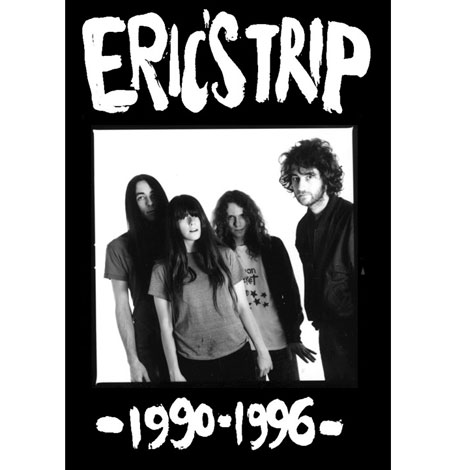A Distorted Revolution: How Eric's Trip Changed Moncton, Music and Me - By Jason Murray
Published: June 26, 2017

As originally seen on
Exclaim.ca.
"Cult heroes" isn't the aspiration for most bands, but looking back at the short, inspirational life of Eric's Trip, it's hard to view the Moncton quartet's career arc through any other lens. After all, this is a band that turned down a deal with Sub Pop Records at the height of their post-grunge fame and cred so they could get a deal that lent them more control — including the ability to record themselves in their Atlantic Canadian home. That's the thrust of new book
A Distorted Revolution: How Music Changed Music, Moncton and Me from Moncton, NB-based music journalist Jason Murray.
It's hard to articulate just how isolated one could feel pre-internet; the sense that you were creating something just for yourself and maybe some friends was certainly at the heart of Eric Trip's earliest releases, which featured individually hand-drawn covers. They lived in Moncton, after all.
But, word of mouth and a fateful showcase in Halifax turned a group that made deeply personal, lo-fi recordings into an international underground buzz-band. The band split up in 1996, but members continue to collaborate, and they've reunited on several occasions — all of which Murray covers here.
The pronoun at the end of the book's title is an important distinction, as Murray uses his proximity to the band pre-fame — he ran in the same '80s skateboarding circles as singer-guitarist Rick White and guitarist Chris Thompson - as the lens through which he views their career. For him, Eric's Trip were a life-changing band who embodied everything that was right about the '90s indie underground. Their influence is still felt in the Moncton music scene.
But that personal connection is something of a double-edged sword. While we see the band's rise through the eyes of the people who knew them, that view also proves to be somewhat myopic, privileging personal memory over a larger historical narrative of the era. Halifax, where most of Eric's Trip's Atlantic Canadian peers were based, is mostly sidelined.
Most notably, readers never really get a sense of what was happening inside a group whose music was framed by fraught interpersonal relations — chief among them, the dissolution of White and bass player Julie Doiron's relationship. With few insights from band members,
A Distorted Revolution keeps the reader on the outside looking in.
Yet, the intriguing narrative of the band and their historical importance in independent music in Atlantic Canada and across the country can't be denied, even if its members' relatively insular nature — White is characterized as something of a hermit these days — has obscured their story.

